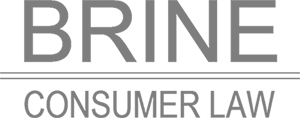While there are a few types of debt that are never dischargeable in bankruptcy, income taxes are not one of them. However, income taxes are not always dischargeable either. There is a three-part test that income taxes must satisfy in order to be dischargeable.
Specifically, in order to be dischargeable:
- The tax return you owe on must have been due to be filed at least three years ago.
- The tax return you owe on must have actually been filed at least two years ago.
- The taxes you owe must have been assessed for at least 240 days.
In most cases, if the taxes aren’t at least three years old, then they may not satisfy these requirements. However, IRS collection activity can complicate these time calculations. For example, a request for an offer in compromise may lengthen the time need to obtain a dischargeable status.
Additionally, under recent court decisions, you may have difficulty discharging income taxes if your tax return was filed late, or if the IRS or MDOR filed a return on your behalf.
Finally, these rules only apply to personal income taxes. Other types of taxes, such as sale tax or payroll taxes, are not dischargeable.
How Will Taxes Impact My Case?
If you owe significant tax debts, then there are two additional items that should be mentioned.
- First, if the IRS or MDOR already have a tax lien against your property, then in some circumstances, you may be able to reduce or eliminate the balance of that lien altogether.
- Second, and perhaps more important, is that the Worcester, Massachusetts bankruptcy court does not consider taxes to be “consumer debt.” This is important for people who might otherwise have difficulty qualifying for a Chapter 7 due to the means test. One exception to the means test is if more than half of your total debts are not “consumer debt.” In that scenario, you will automatically be eligible for Chapter 7 and no means test is required.
Therefore, if you are dealing with significant tax debts, you should discuss all of your options with an experienced bankruptcy attorney. Contact Brine Consumer Law today for a free consultation.

